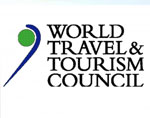|
 |
Visa reforms to
help India's travel & tourism industry grow by 7.5%
this year: WTTC
According to latest
research by World Travel & Tourism Council (WTTC),
the travel and tourism industry in India will grow
by 7.5 per cent in 2015, fueled by visa reforms.
Last year, the industry contributed Rs 7,642 billion
to the Indian economy and created 36.7 million jobs
in the Indian market.
The Indian government had extended the
Visa-on-Arrival (VoA) enabled by Electronic Travel
Authorization (ETA) scheme to 43 countries in
November 2014. Visitors from those countries no
longer have to queue up at local consulates, but can
apply for visas online. David Scowsill, President &
CEO, WTTC, said, "India is one of the biggest travel
and tourism economies in the world, contributing
significantly to economic wealth and job creation.
Much needed reforms to its visa rules will provide
the foundation for very strong growth in the sector
during 2015." This year, the tourism industry's GDP
contribution is estimated to grow by 7.5 per cent
and employment creation by 1.8 per cent. This
demonstrates the sector's enduring ability to
generate economic growth and create jobs at a faster
rate vis-a-vis the national economy, which is due to
grow by 6.7 per cent in 2015, the Annual Economic
Forecasts by WTTC for India states.
By the end of 2015, the travel and tourism sector
will contribute Rs 8,215 billion, seven per cent of
India's GDP, and create 37.4 million jobs, almost
nine per cent of total employment, once all direct,
indirect, and induced impacts are taken into
account.
"Travel and tourism drives jobs and economic growth,
well-being and prosperity. It creates jobs at
different skills levels and in areas where other
employment opportunities are scarce. Failure to plan
properly for talent requirements leads to lower
growth, reduced investment, less innovation and
declining competitiveness. |
